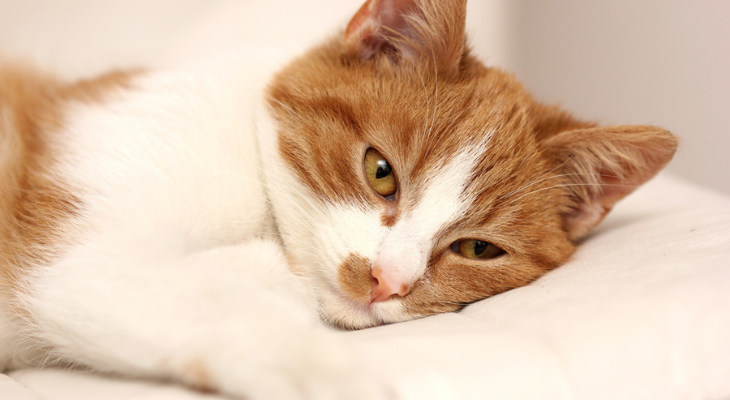
Is Your Cat Suffering From Pain?
Hiding pain is one of your cat's natural instincts. In fact, displaying pain or weakness makes cats an attractive target for predators in the wild. Although dangerous predators don't lurk in your home, those instincts still surface when your favorite feline is suffering. Luckily, a few tell-tale signs can help you determine if your pet is hurt or sick. Your cat may exhibit one or more of these behaviors if it's in pain.
Frequent Meowing
Your cat can't tell you where it hurts but can communicate with you by vocalizing. If your pet meows more often than normal, pain may be the reason. Cats in pain may also hiss or growl, particularly if you happen to touch a painful area. Purring doesn't always mean that your cat is happy. In fact, purring can also occur if your pet is in pain or stressed.
Breathing Changes
Has a sharp pain ever taken your breath away or changed your breathing pattern? Your cat may react the same way. Rapid breathing or panting are signs that something isn't quite right with your pet.
Hiding Out
If your pet is spending most of its time under a bed or in another out-of-the-way place, pain may be the reason. When that natural instinct kicks in, pets automatically look for a safe, secure hiding place. In addition to providing protection from predators, hiding spots also prevent curious children or concerned family members from bothering your pet.
Trouble Moving
Your cat may have problems jumping, walking, or struggling to stand if it's in pain. Limping, shaking, and restlessness could also mean that something hurts. You may notice that your cat can't seem to find a comfortable position, avoids putting all of its weight on an injured limb, or does not want to be held.
Behavioral Changes
A normally friendly cat may become irritable or aggressive due to pain. Other cats may not hide but might actually want to spend more time with you if they are in pain. Any of these changes in your cat's behavior could be caused by pain:
- Poor appetite
- Drooling
- Weight loss
- No interest in grooming (matted fur and a messy coat can be signs of grooming issues)
- Urinating or defecating outside the litter box
- Sleeping more or less than normal
- Lack of interest in spending time with family members
- Biting or licking part of the body
- Disinterest in playing
Physical Changes
Your poor pet may grimace when a bout of pain strikes or walk a little differently. You may notice glazed eyes, large pupils, frequent blinking, or tail flicking. A cat in pain may look hunched and keep its feet tucked under its body.
Common Causes of Pain in Cats
Pain can occur for many reasons. Your cat could have been hurt after a fall down the steps or when playing with another pet. Does your pet spend time outdoors? Poisoning, an attack from a wild animal, or a car accident could be the reason your pet's behavior has changed.
A health disease or condition could also be the source of the pain. Common conditions that cause pain include:
- Toothache
- Stomatitis (inflammation of the mouth)
- Cancer
- Urinary tract infection
- Urinary tract blockage
- Bladder stone
- Interstitial cystitis
- Kidney failure
- Abscess
- Soft tissue injuries
- Nerve damage
- Ear infection
- Eye infection or condition
- Digestive problems
- Orthopedic (bone) disorders
- Ingrown nails
Arthritis, a degenerative joint disease, is a common cause of pain for older cats. Pain and difficulty jumping or walking can be signs of arthritis. The disease often affects the elbow, ankle, knee, or hip joints in cats, according to the American College of Veterinary Surgeons.
Even subtle changes in your cat's behavior may mean that your furry friend is struggling with pain. If you've noticed any of these behaviors in your pet, give our office a call as soon as possible. We can offer treatments that will ease your pet's pain and improve its comfort.
Sources:
American Animal Hospital Association: How to Tell if Your Cat Is in Pain
Hill’s: Is Your Cat Hiding Her Pain? Recognizing the Signs & Symptoms, 7/11/16
International Veterinary Academy of Pain Management: Common Signs of Pain in Dogs and Cats
dvm360: Feline Chronic Pain, 1/8/19
American College of Veterinary Surgeons: Osteoarthritis in Cats
